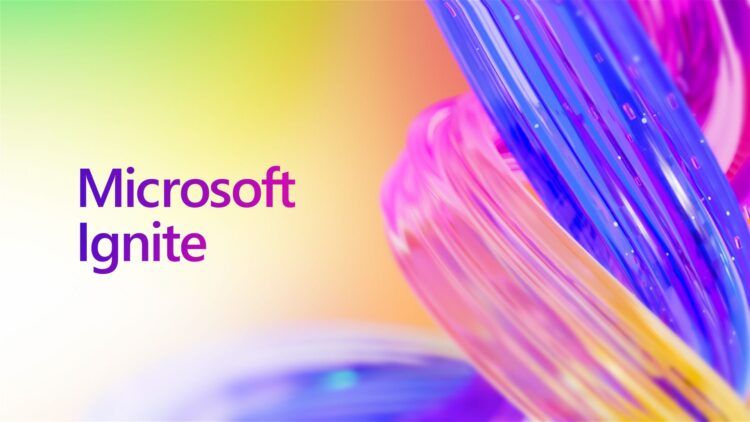Microsoft Ignite 2023 announcements, the fruits of the eagerly anticipated annual conference for developers and IT professionals, recently took center stage, revealing a myriad of groundbreaking developments and forward-looking initiatives.
This year’s event not only showcased Microsoft’s commitment to embracing emerging technologies but also solidified its position as a trailblazer in the realm of artificial intelligence (AI).
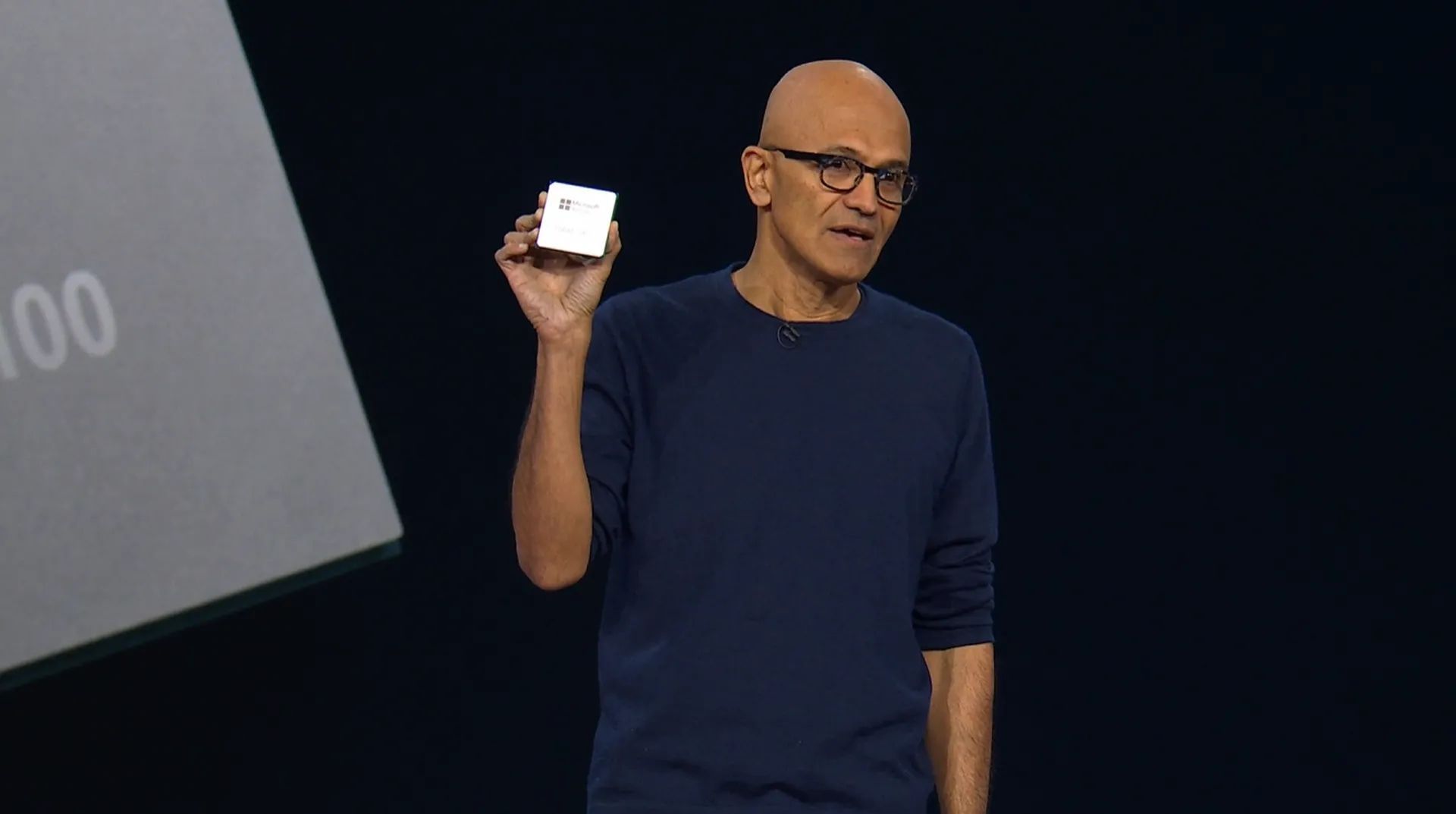
Microsoft Ignite 2023 announcements had a big focus on AI
At the heart of Microsoft Ignite 2023 announcements was a palpable emphasis on the transformative potential of AI. Microsoft’s unveiling of the Microsoft 365 Copilot marked a significant stride in AI integration, promising to redefine the user experience across Windows, Microsoft 365, and Azure. CEO Satya Nadella, in his opening keynote on November 15th, highlighted the company’s dedication to infusing AI into every facet of its product offerings.
AI in virtual reality
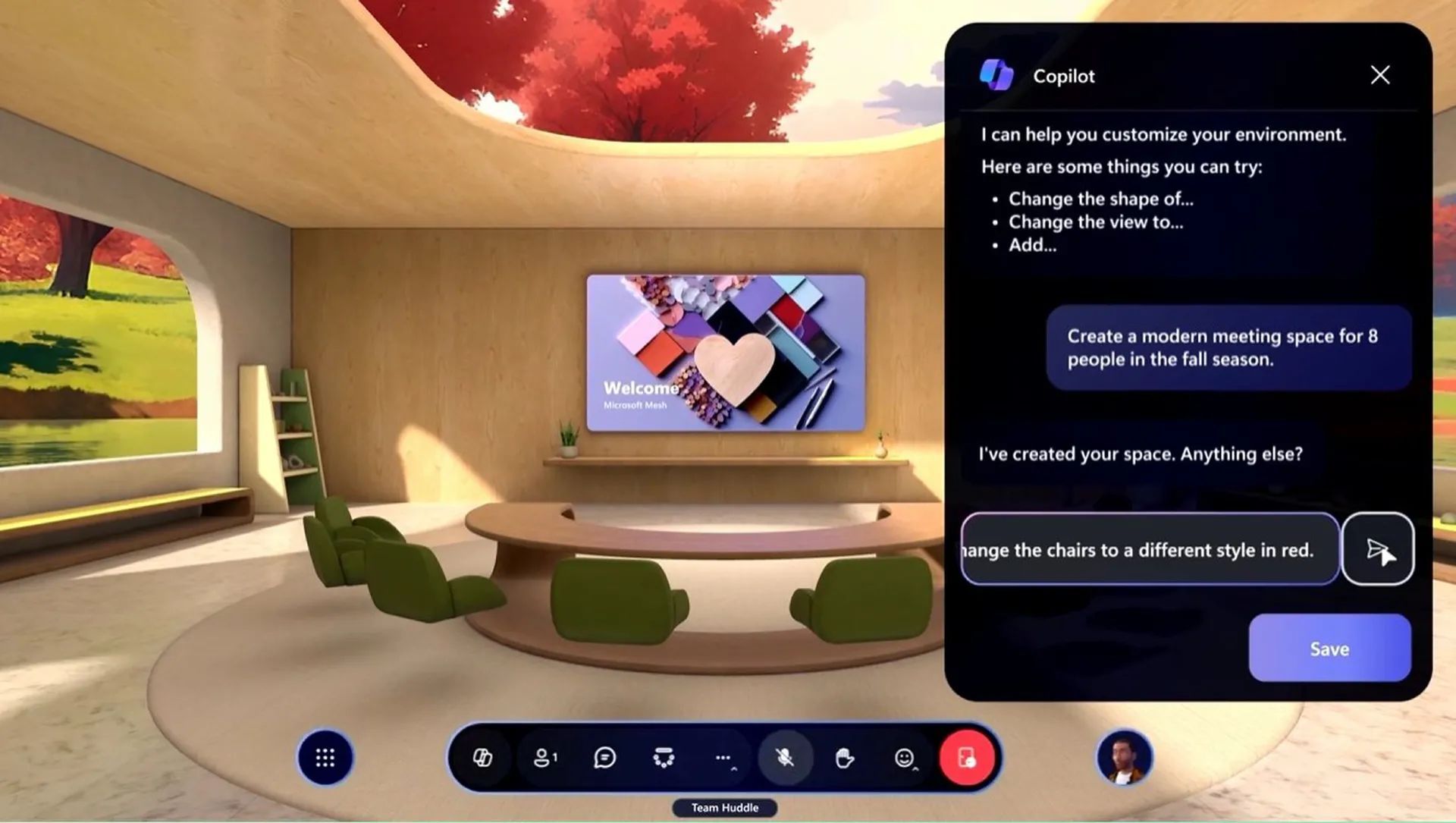
Generative AI’s foray into virtual reality (VR) was a notable revelation. Microsoft Teams is set to undergo a 3D transformation, introducing a VR meetings experience in January 2024. The Copilot system, part of Microsoft’s generative AI initiative, is poised to play a pivotal role in crafting meeting spaces and objects in the VR realm, underscoring the evolving landscape of collaborative workspaces.
Nvidia’s bold proclamation
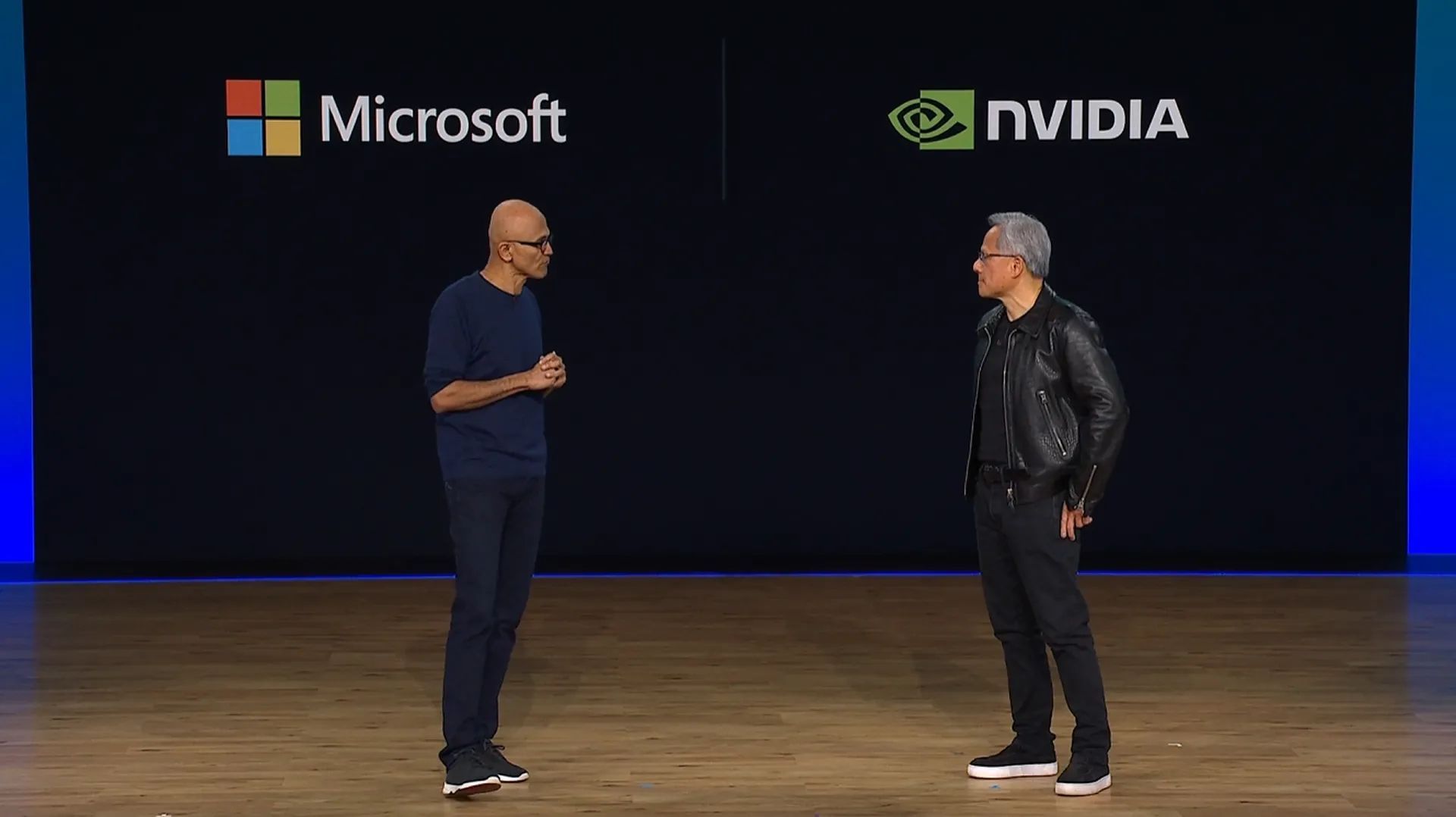
Nvidia’s CEO, Jensen Huang, took the stage to assert that generative AI represents the single most significant platform transition in computing history. Going further, Huang boldly declared that this transition surpasses the impact of personal computers, mobile devices, and even the internet. This proclamation underscores the seismic shift AI is bringing to the forefront of technological progress, with Nvidia reaping the benefits with a reported $6 billion in pure profit.
OpenAI collaboration and Azure innovations
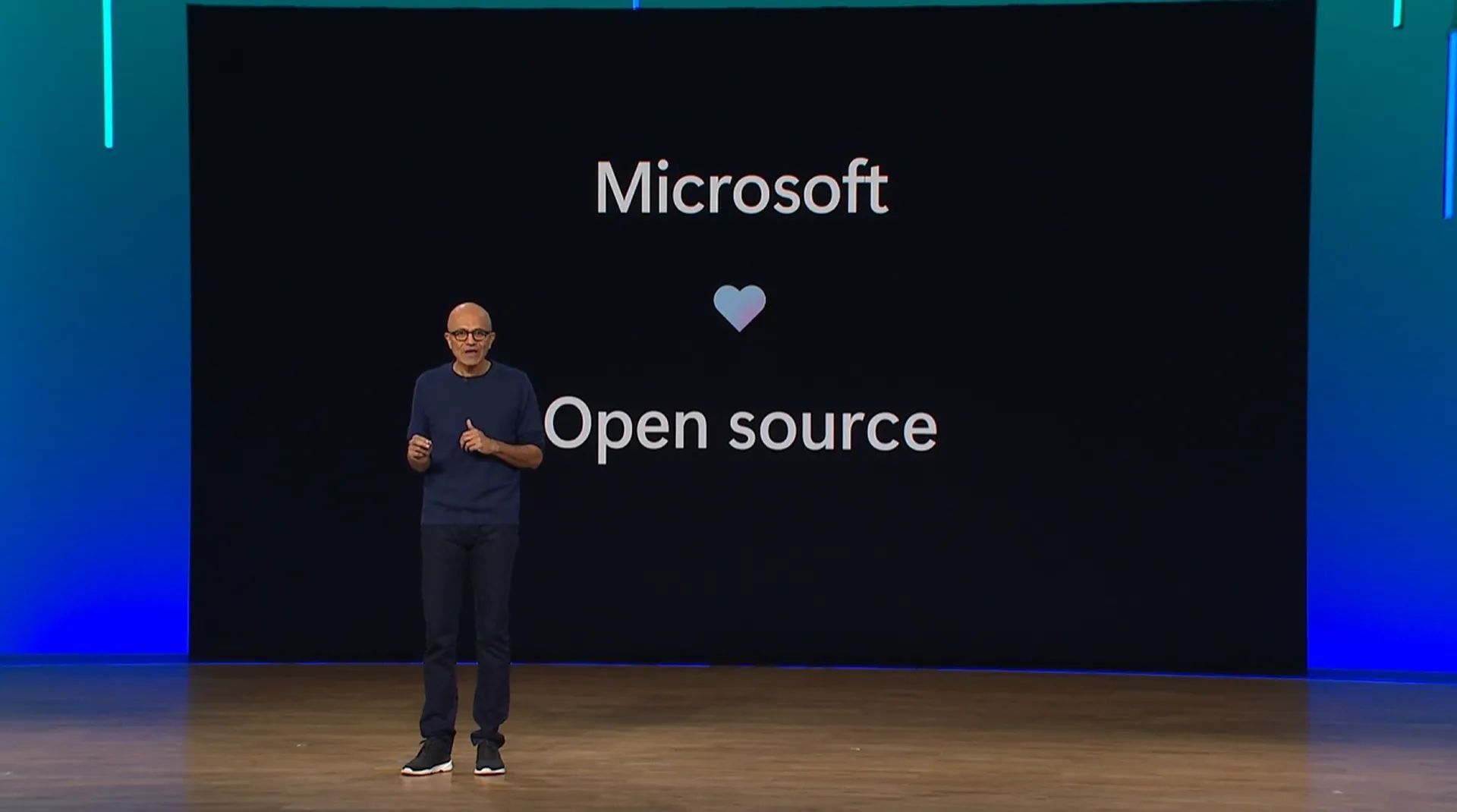
Satya Nadella reaffirmed Microsoft’s commitment to OpenAI and open source initiatives, announcing the integration of the GPT-4 Turbo model into Azure OpenAI. The partnership aims to democratize access to advanced AI capabilities. Additionally, Microsoft introduced new AI chips, including the Azure Cobalt 100, positioned as the fastest among cloud providers.
Microsoft’s venture into Custom AI chips
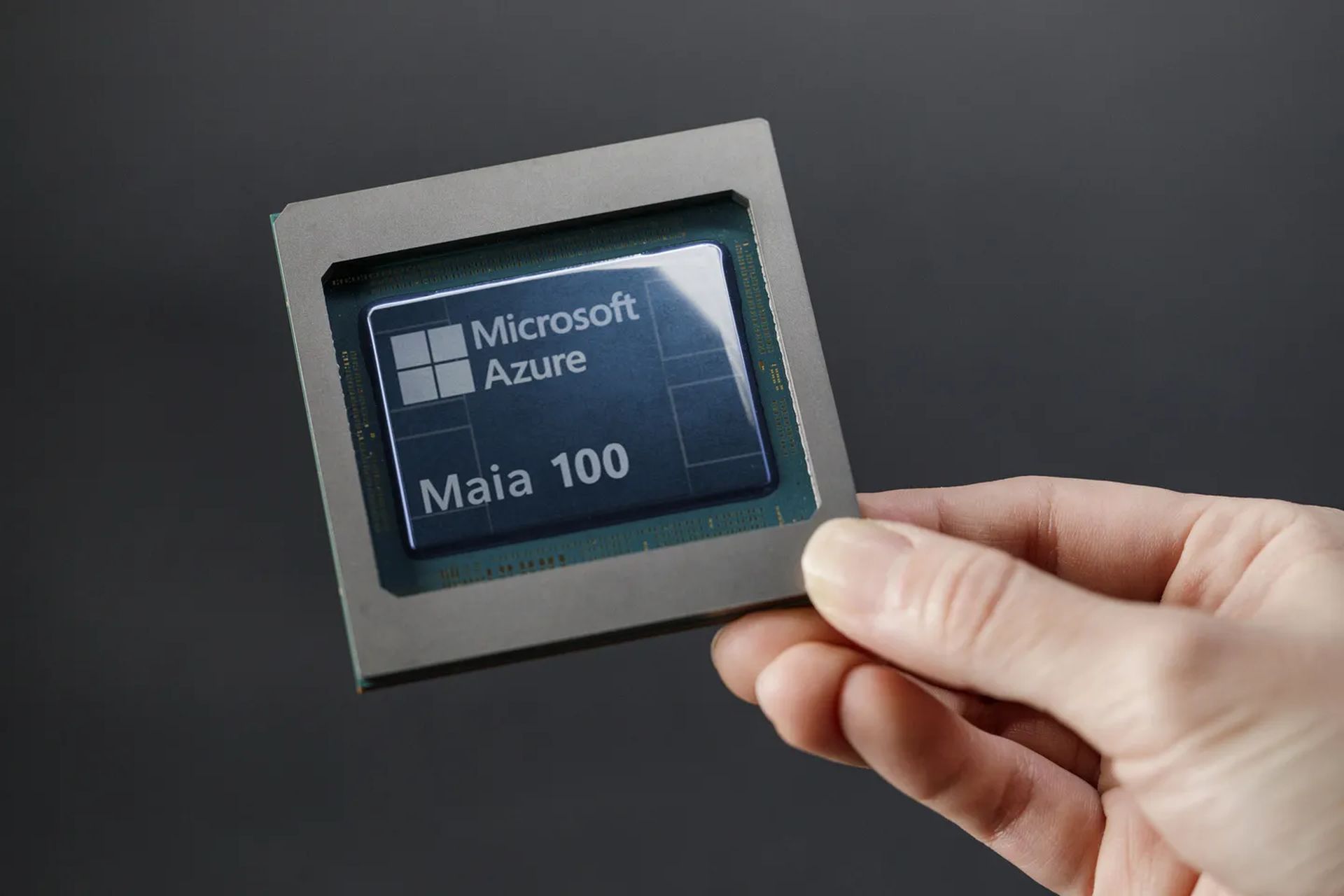
In a significant move, Microsoft unveiled its foray into custom AI chips, introducing the Azure Maia AI chip designed for training large language models. Alongside this, the company introduced Copilot Studio, a no-code solution allowing businesses to build custom AI copilots, showcasing a commitment to empowering enterprises with AI capabilities tailored to their needs.
Unified security and productivity
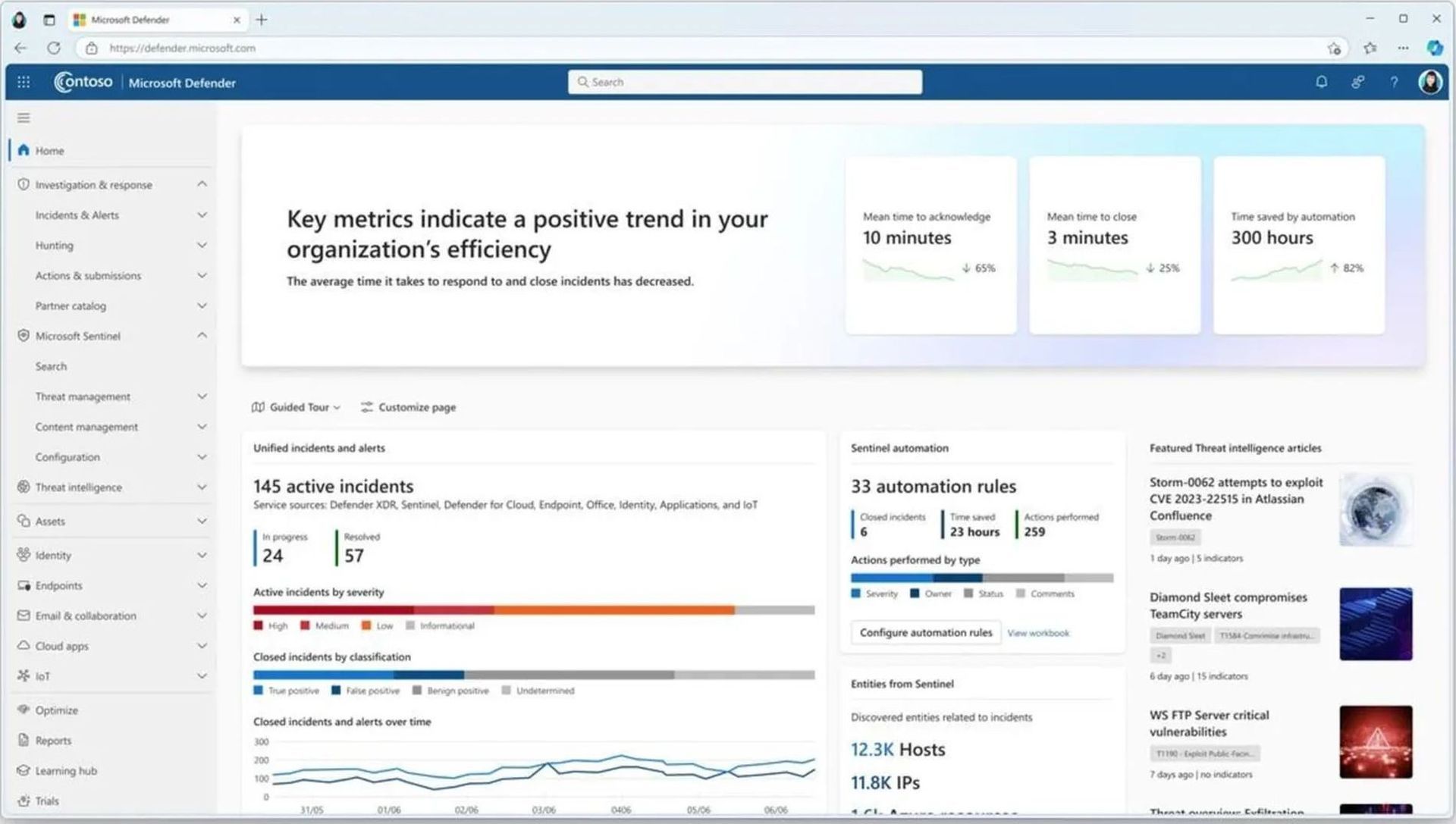
Security took center stage with Microsoft’s announcement of a unified security operations platform, merging Sentinel security analytics and Microsoft Defender XDR. The platform introduces the Security Copilot chatbot, providing a centralized hub for IT and security personnel to manage security effectively. In the productivity arena, Loop, Microsoft’s answer to Notion, was officially launched, offering collaborative workspaces and pages.
Streamlining project management
Acknowledging the complexity of project management, Microsoft announced a strategic move to streamline its task management tools. Microsoft To Do, Microsoft Planner, and Microsoft Project for the web are set to be amalgamated into a unified experience named Microsoft Planner. This initiative aims to enhance collaboration for small teams and businesses, promoting a more cohesive project management experience.
The future of Microsoft Teams
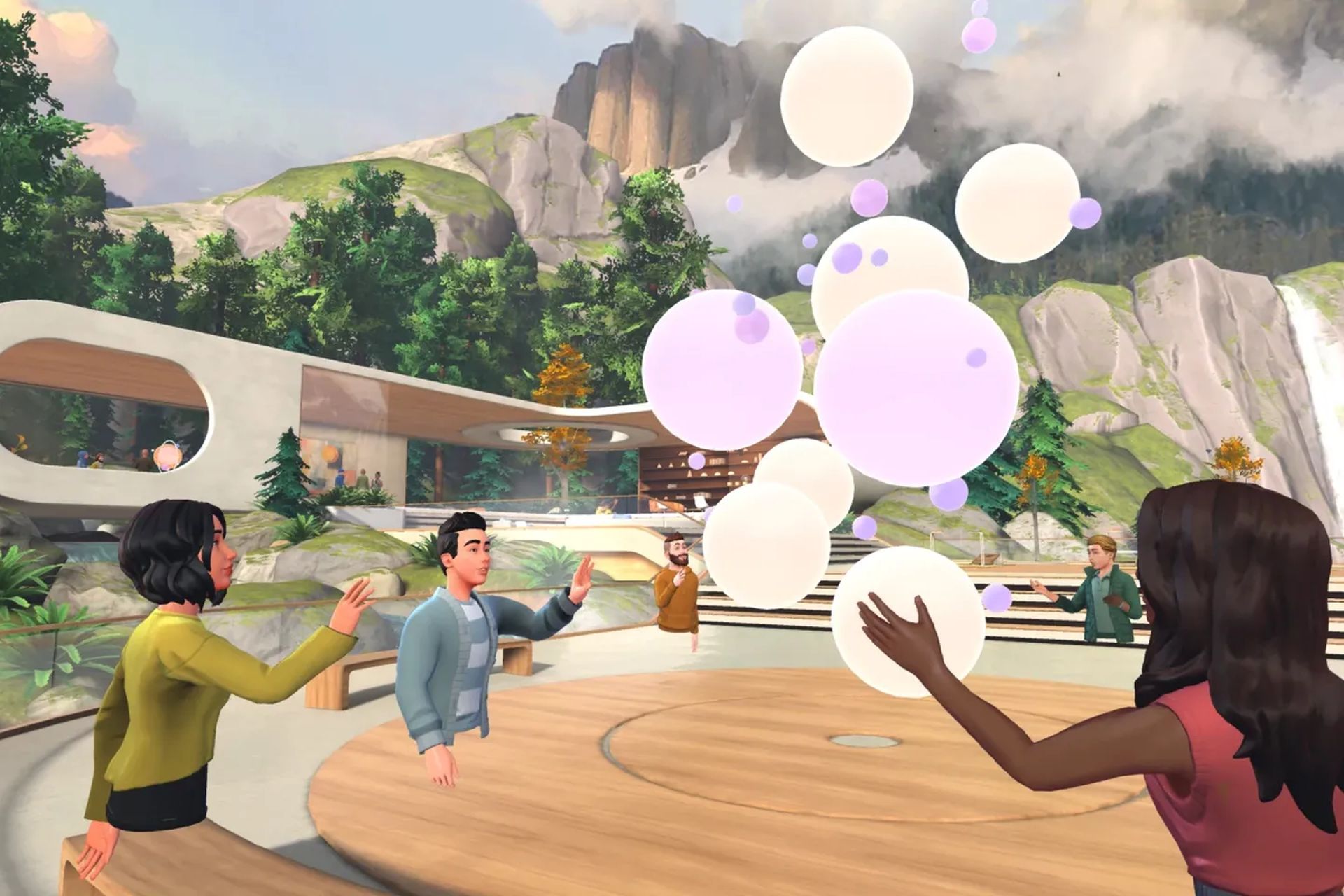
Microsoft Teams is poised for a transformative journey into the realms of augmented reality and virtual meetings. The integration of Microsoft Mesh into Teams in January 2024 promises immersive 3D meetings without the need for VR headsets, showcasing Microsoft’s commitment to evolving collaboration platforms.
Copilot gets more personalized
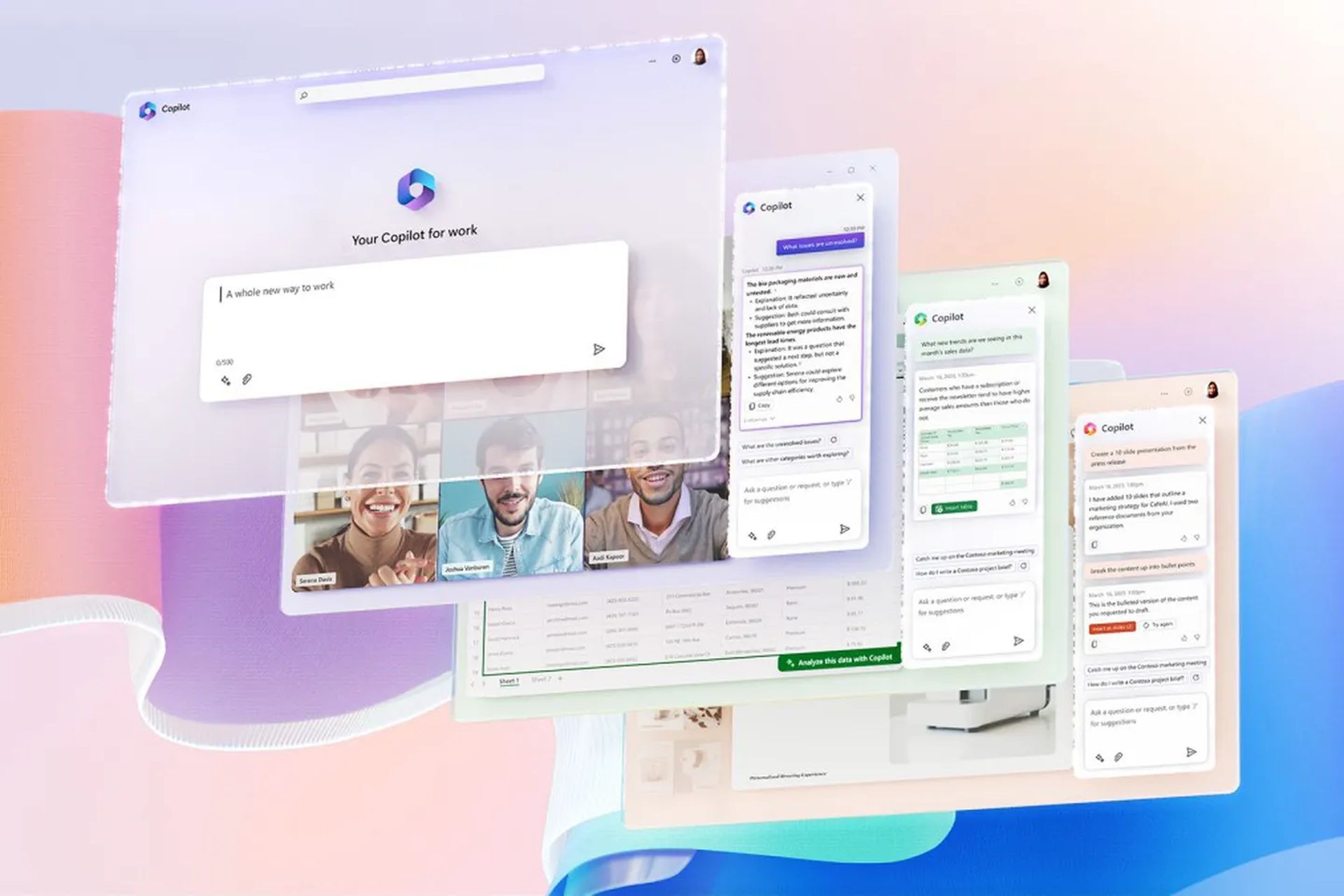
Microsoft Copilot AI is getting a personal touch in its latest update since launch. The company unveiled a bunch of changes at Microsoft Ignite today, focusing on making the chatbot more engaged and involved, especially during Teams meetings. These updates broaden Copilot’s role as a helper in various Office apps like Teams, PowerPoint, and Outlook.
Now, users have more control over the chatbot’s output. They can fine-tune it with instructions to match their preferred formatting and tone. Initially, the new personalization features will roll out to Word and PowerPoint, with other Microsoft 365 apps slated to gain support over time.
Microsoft Copilot will let users build their own AI copilots
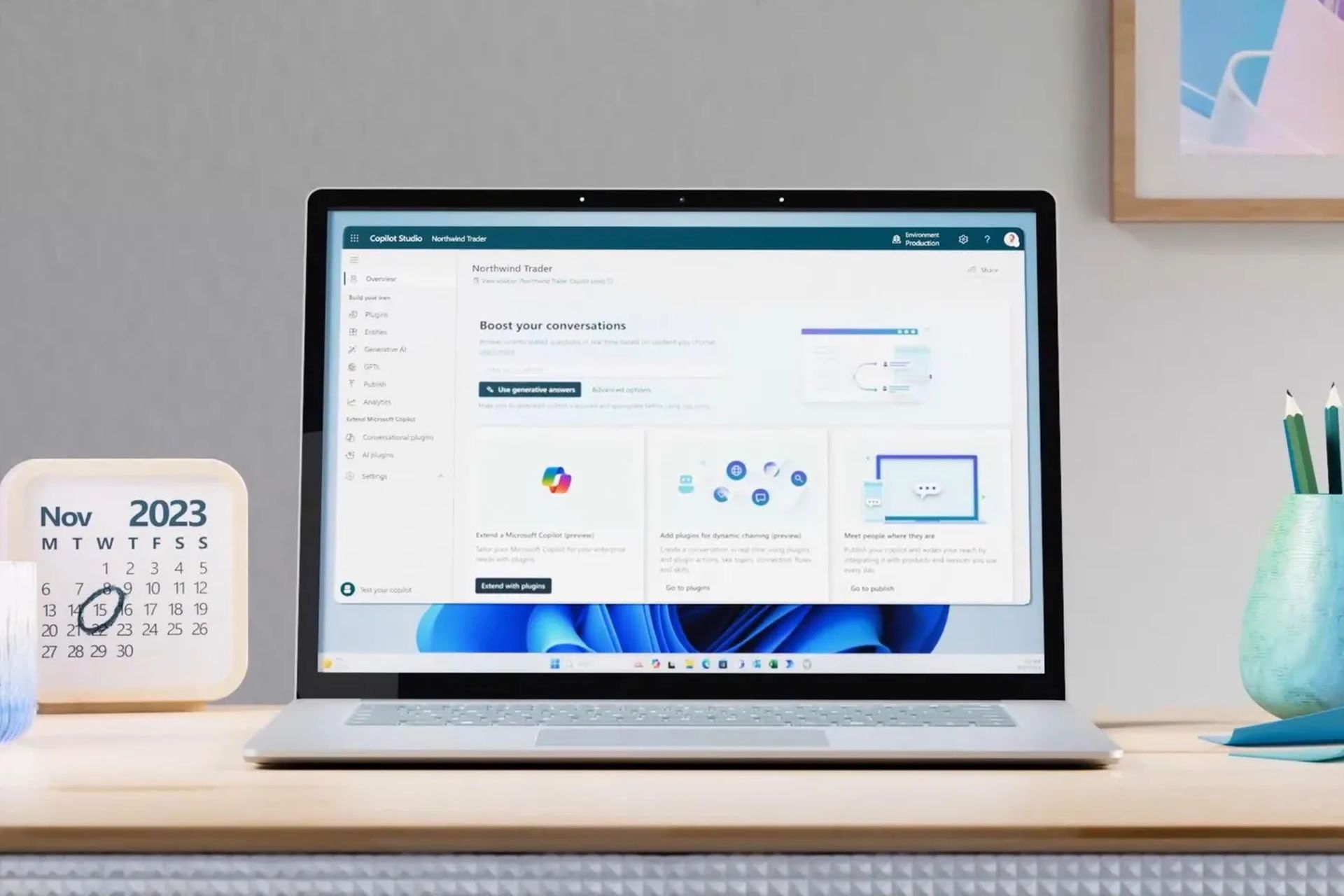
OpenAI recently introduced its new GPT platform, allowing individuals to craft their own versions of ChatGPT. Following suit, Microsoft has now unveiled Copilot Studio, a no-code solution empowering businesses to fashion a personalized copilot or seamlessly integrate a customized ChatGPT AI chatbot.
The primary aim of Microsoft Copilot Studio is to enhance Microsoft 365 Copilot, a paid service introduced by Microsoft just last month. With this new offering, businesses gain the ability to tailor their Copilot in Microsoft 365. This includes incorporating datasets, automation flows, and even creating custom copilots not covered by the Microsoft Graph that fuels Microsoft 365 Copilot.
Microsoft Ignite 2023 announcements stand as numerous testaments to Microsoft’s unwavering commitment to innovation. From AI breakthroughs and custom chips to streamlined productivity tools, the event unveiled a roadmap for the future. As the tech giant continues to pioneer advancements, the impact on businesses, developers, and end-users alike is bound to be profound. Stay tuned for the unfolding narrative of these technological milestones in the months and years ahead.
Meanwhile, if you have been more curious about Microsoft Copilot than you know, make sure to check out our article on how it was launched worldwide with Windows 11 23H2.
Featured image credit: Microsoft

